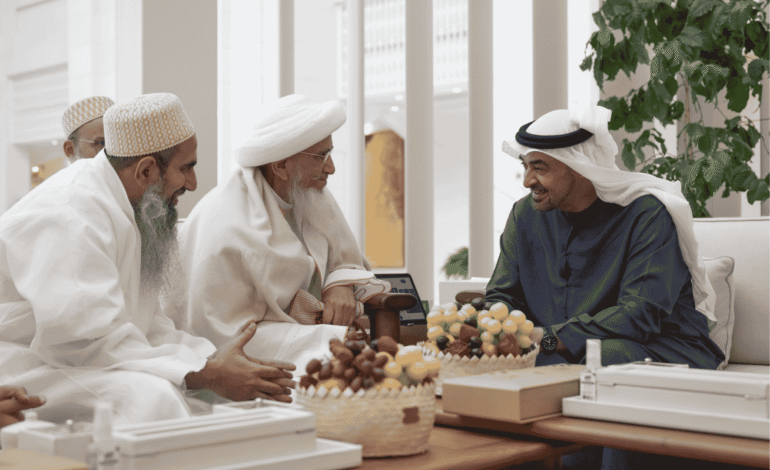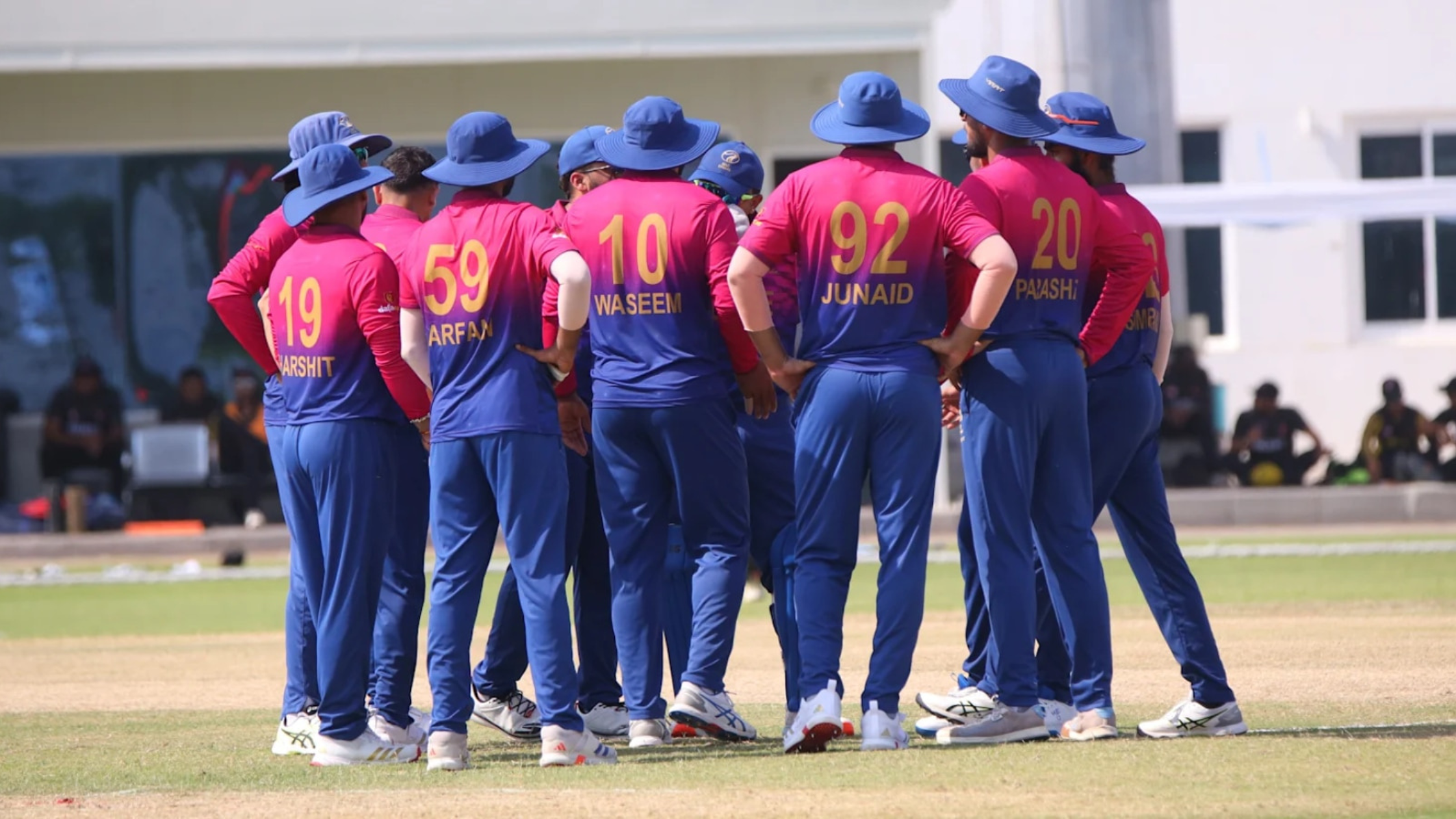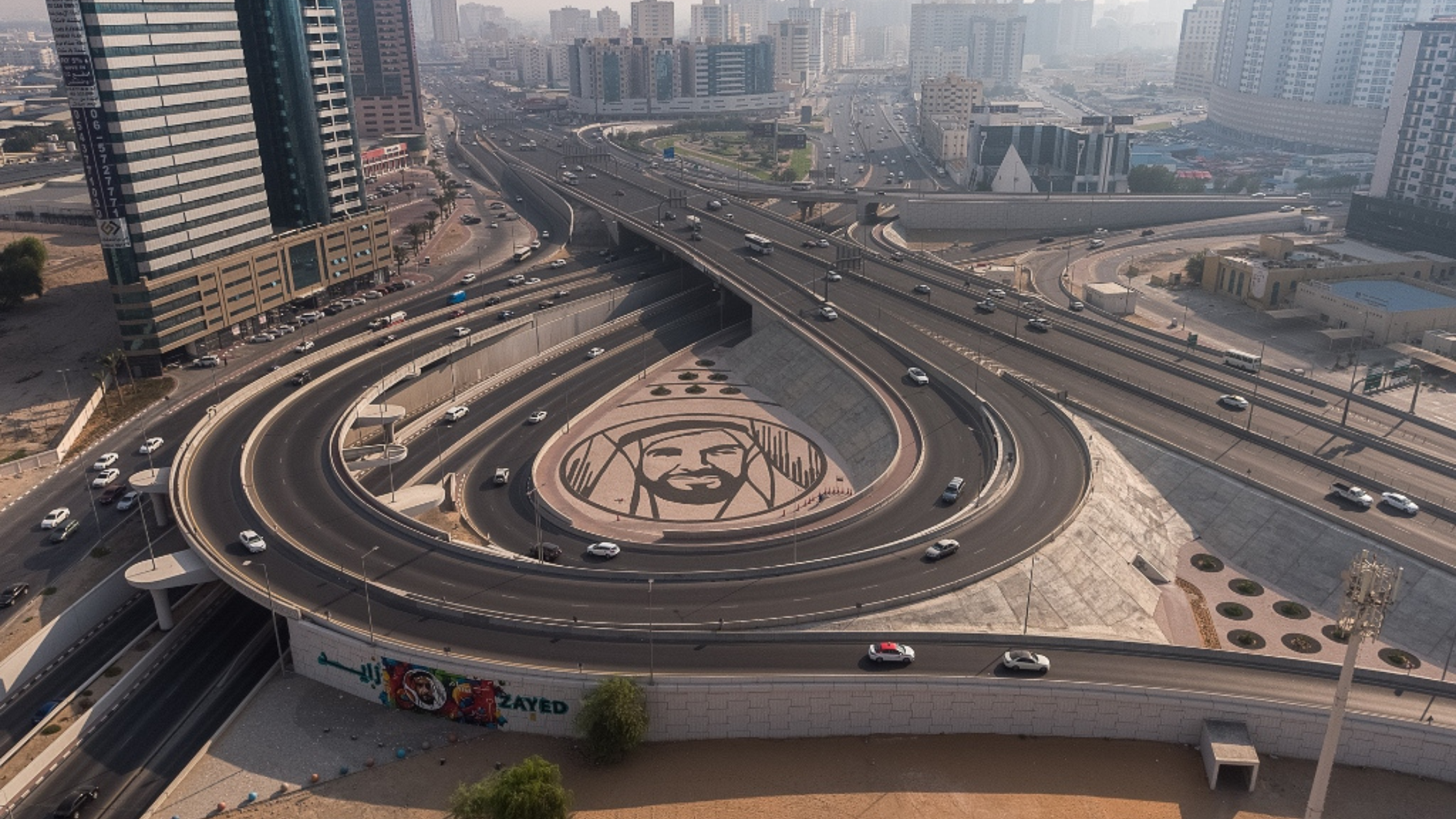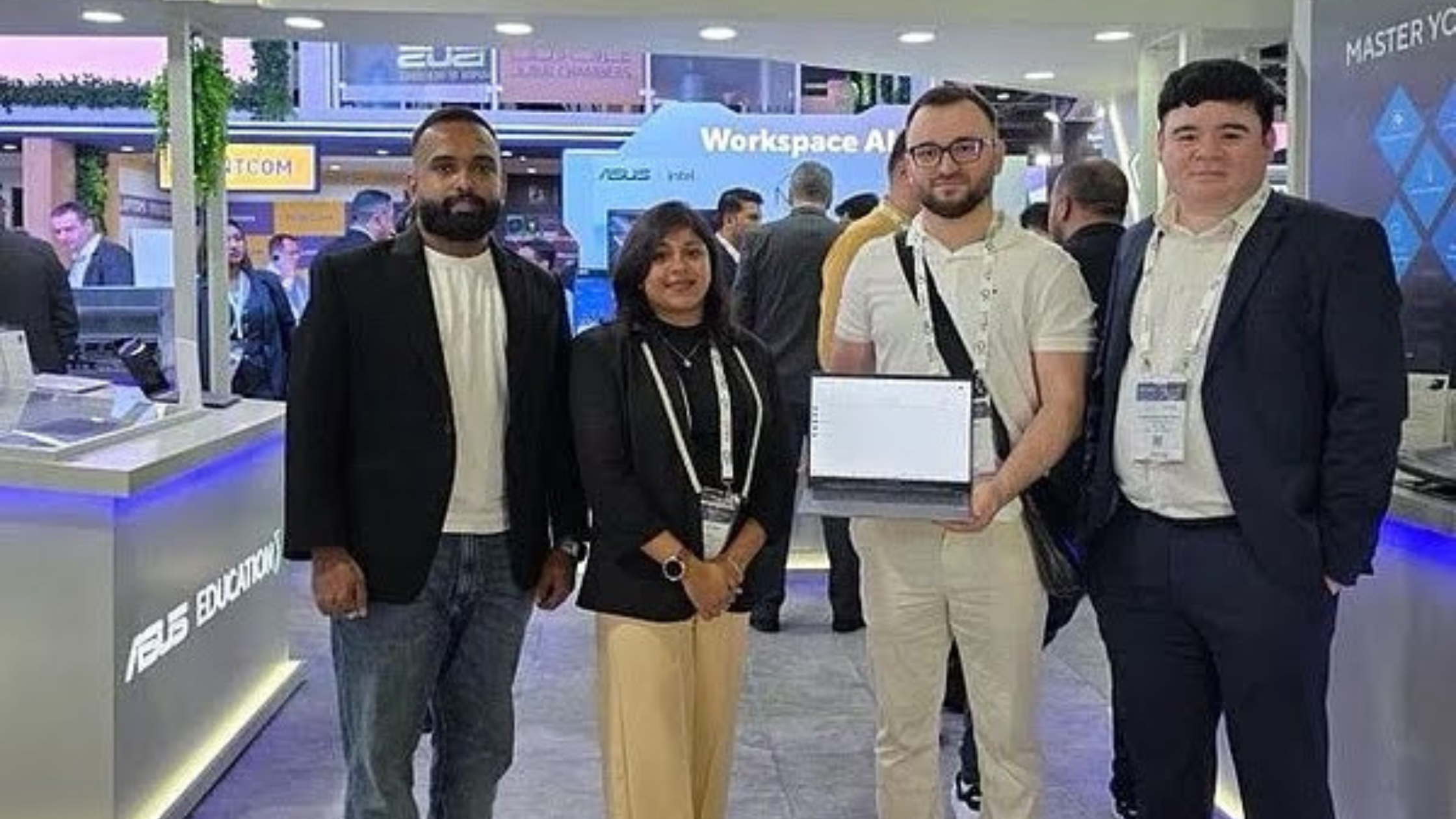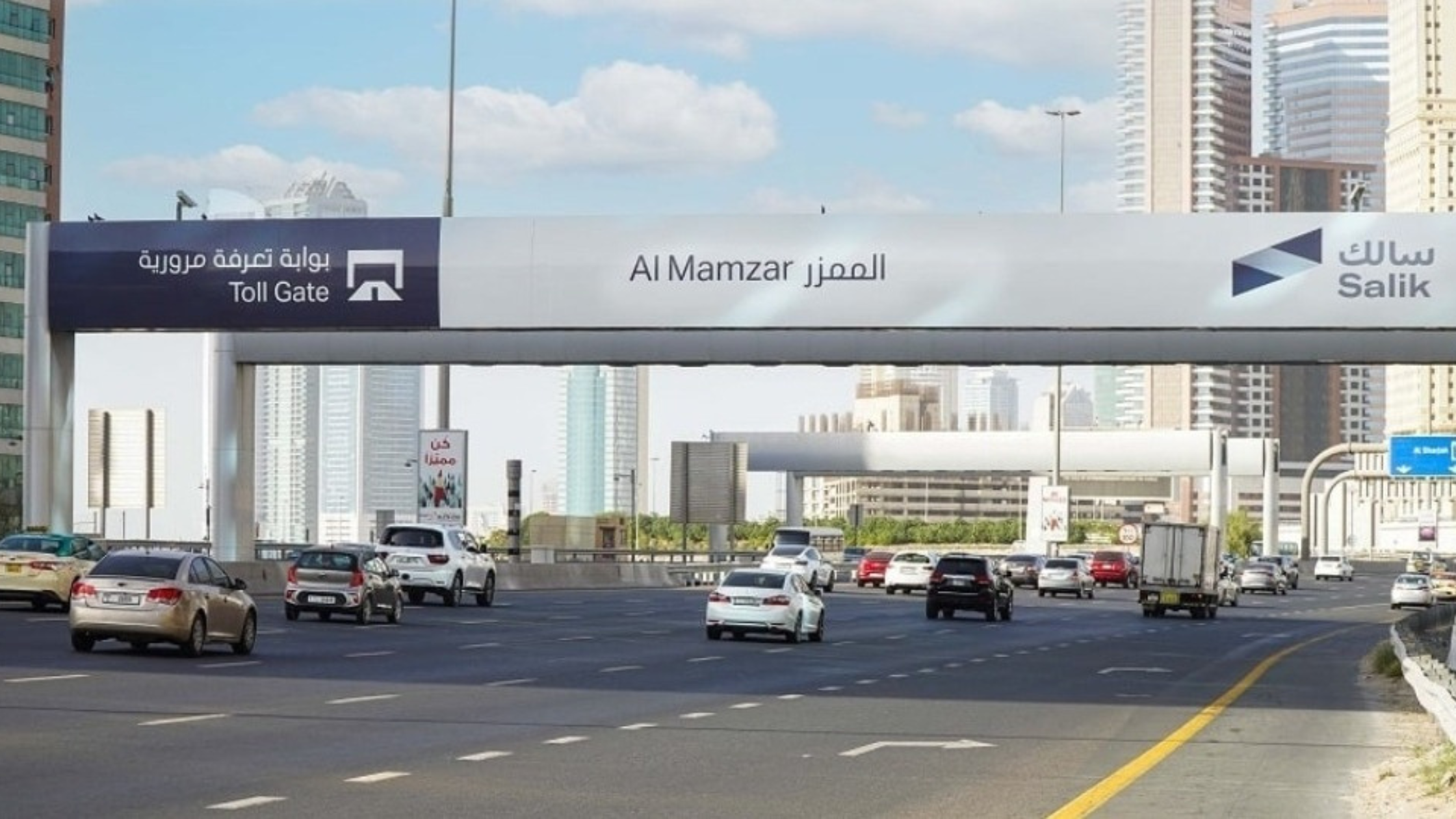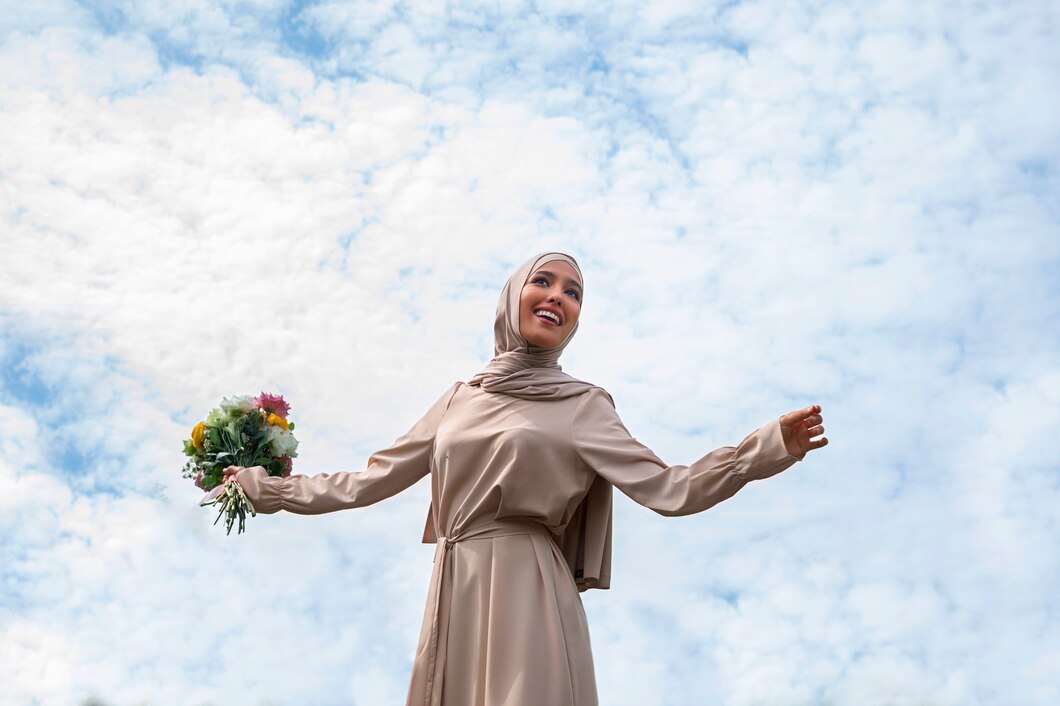A Meeting Marking Spiritual Diplomacy and Shared Humanity
In a profound display of mutual respect and interfaith unity, His Highness Sheikh Mohamed Bin Zayed Al Nahyan, President of the United Arab Emirates, welcomed Sultan Mufaddal Saifuddin, the spiritual leader of the Dawoodi Bohra community, at Qasr Al Shati in Abu Dhabi. This significant encounter exemplified the UAE’s continued dedication to nurturing peaceful coexistence, inclusive dialogue, and cross-cultural understanding.
The meeting carried added symbolism as it took place during Eid Al-Adha, one of the holiest celebrations in the Islamic calendar. It set the tone for a warm and meaningful exchange that extended beyond formalities and delved into themes of compassion, global harmony, and community resilience.
The visit highlighted the UAE’s standing as a key proponent of interfaith dialogue and underscored the Dawoodi Bohra community’s global efforts in promoting values of equity, service, and humanitarian responsibility.
Eid Al-Adha Spirit Illuminates the Meeting’s Message
The timing of the meeting, occurring during Eid Al-Adha, emphasized the shared spiritual and ethical values upheld by both leaders. They exchanged Eid greetings and good wishes for peace, well-being, and prosperity to communities around the world. This moment reflected the broader principles embodied in the festival itself—compassion, sacrifice, gratitude, and charity.
Sheikh Mohamed and Sultan Saifuddin agreed that religious occasions serve as a vital platform for reinforcing unity and compassion across cultures and nationalities. Their mutual hopes echoed far beyond the walls of the presidential palace, inspiring those who believe in the power of faith to foster peace and understanding.
This was not just a ceremonial exchange, but a meaningful affirmation of how spiritual and political leadership can converge to address global challenges and promote inclusivity.
Commending the UAE’s Humanitarian Contributions
Sultan Saifuddin lauded the humanitarian initiatives undertaken by the UAE under the leadership of Sheikh Mohamed Bin Zayed Al Nahyan. From supporting refugee communities and delivering emergency relief during global crises to investing in education and health in underdeveloped regions, the UAE’s actions exemplify a sincere commitment to shared human values.
The Dawoodi Bohra leader acknowledged these efforts as pivotal in setting a global example for benevolent governance. He remarked that the UAE’s interventions resonate deeply with the core values of the Bohra community, which prioritizes compassion, education, sustainability, and inclusive development.
Sultan Saifuddin emphasized that these initiatives mirror the prophetic teachings of Islam and represent the ideal of governance rooted in empathy and accountability.
Recognizing Shared Commitments to Peace and Tolerance
One of the central themes of the meeting was the importance of coexistence and tolerance in an increasingly divided world. The leaders agreed that peaceful societies are built on mutual respect, civic responsibility, and active engagement between faiths and cultures.
Sheikh Mohamed reaffirmed the UAE’s vision of being a land where people from every background can live with dignity and respect. Sultan Saifuddin responded by highlighting how the Dawoodi Bohra community, spread across more than a hundred nations, holds similar values and actively works to foster social cohesion and upliftment wherever they reside.
Both leaders voiced their conviction that tolerance is not simply a policy but a lived value, embedded in daily interactions, institutional policies, and spiritual teachings. The UAE’s inclusive social landscape offers a compelling example of what peaceful pluralism can look like in practice.
Participation of Key UAE Leaders Strengthens Message of Unity
The significance of this meeting was amplified by the presence of several senior Emirati leaders, reflecting its strategic, social, and cultural importance. Among the dignitaries were Sheikh Hamdan Bin Zayed Al Nahyan, the Ruler’s Representative in the Al Dhafra Region; Sheikh Hazza Bin Zayed Al Nahyan, the Ruler’s Representative in the Al Ain Region; and Lieutenant General Sheikh Saif Bin Zayed Al Nahyan, the Deputy Prime Minister and Minister of the Interior. Other senior officials from federal and regional offices were also present.
Their attendance sent a powerful message of institutional unity behind the UAE’s policy of religious inclusion and highlighted the deep respect afforded to spiritual figures of global influence like Sultan Saifuddin. It also reinforced the collaborative nature of governance in the UAE, where leaders work in unison to support dialogue, harmony, and humanitarian causes.
Dawoodi Bohra Community’s Role in the UAE’s Social Fabric
The Dawoodi Bohra community has maintained a respectful and constructive relationship with the UAE for decades. Known for their ethical entrepreneurship, education, and environmental stewardship, the Bohras have contributed meaningfully to the UAE’s business ecosystem and civic life.
Many Dawoodi Bohras have established successful ventures across Dubai, Abu Dhabi, and other emirates, and actively participate in philanthropic and environmental initiatives. They are widely recognized for their emphasis on cleanliness, sustainability, and compassion. Their integration into Emirati society reflects the UAE’s ability to attract communities that thrive on values of mutual respect and service.
Sultan Saifuddin expressed his gratitude to the UAE for providing an environment in which his community could flourish, contribute, and find a true sense of belonging. He noted that the UAE’s open-door policy has created a nurturing space for people of all faiths to live peacefully and pursue meaningful lives.
Religious Leadership in a Globalized World
The meeting further emphasized the evolving role of religious leaders in a rapidly changing global landscape. Sultan Saifuddin and Sheikh Mohamed discussed the importance of faith-based leadership in promoting reconciliation, community health, and ethical development.
Their dialogue shed light on how spiritual values can be aligned with modern governance to address shared global concerns. Religious leaders today are increasingly seen as moral compasses capable of uniting diverse communities through advocacy, service, and values-driven action.
Sultan Saifuddin reaffirmed that religious leadership must serve not only to inspire faith communities but to work collaboratively with governments to uplift society. Sheikh Mohamed emphasized that the UAE will always welcome constructive partnerships that uphold peace, dignity, and sustainable growth.
Vision for Future Collaboration and Social Impact
The dialogue between Sheikh Mohamed and Sultan Saifuddin also opened avenues for future collaboration in key areas. Sultan Saifuddin showed interest in exploring partnerships in education, environmental sustainability, public health, and youth development.
These areas align closely with the UAE’s national development strategy and the Dawoodi Bohra community’s global mission to serve humanity. The possibility of collaborative initiatives in renewable energy, water conservation, food security, and digital education offers a forward-looking framework for cooperation rooted in shared values.
Both leaders envisioned a model where spiritual and national leadership could merge their efforts to create tangible, long-term impacts in society. It is this kind of synergy that the world urgently needs to meet the challenges of the 21st century.
A Legacy of Friendship and Shared Ideals
This meeting added another chapter to the long-standing relationship between the UAE and the Dawoodi Bohra community. The community’s previous leader, Syedna Mohammed Burhanuddin, also enjoyed close ties with the late Sheikh Zayed Bin Sultan Al Nahyan, founding father of the UAE. These connections have only deepened with time, nurtured by mutual respect and shared aspirations.
The legacies of both past and present leaders have helped foster a climate where diversity is not merely tolerated but celebrated. The meeting symbolized continuity in that vision—a testament to leaders who believe in the potential of faith and dialogue to build bridges rather than walls.
As Sheikh Mohamed and Sultan Saifuddin concluded their discussions, they left behind a resonant message: that peace, understanding, and coexistence are not utopian ideals but actionable principles that must be advanced through daily effort, compassionate leadership, and unwavering dialogue.

